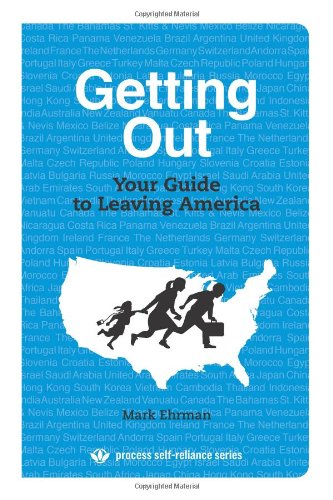The only way for a U.S. citizen or permanent resident to sever all ties with the United States is to expatriate. That is, you give up your citizenship and passport, or, in the case of a permanent resident, your green card, and live as a foreigner outside the United States.
The “official” number of people who take this admittedly radical step is tiny – only a few hundred annually. Their names are published in the Federal Register each quarter. But the real numbers are probably much higher.
My own firm helped six people expatriate in 2009, and we have several more in the pipeline for 2010. There’s nearly a one-year wait to make an appointment to expatriate at the U.S. consulate in London. Waiting times are almost as long at numerous other consulates worldwide…
But perhaps I’m getting ahead of myself. Why would anyone want to expatriate? There are numerous reasons.
- To permanently disconnect from U.S. tax obligations, a U.S. citizen must not only become a non-resident, but also give up U.S. citizenship and passport. If you’re wealthy, giving up U.S. citizenship and residence can save millions or even billions of dollars in future taxes.
- Expatriation also eliminates the increasing difficulties U.S. citizens face investing or doing business outside the USA. As a consequence of the U.S. government’s intensifying crackdown against anything “offshore,” most offshore banks now prohibit anyone with any connection to the United States from opening an account. Giving up U.S. citizenship and passport eliminates this problem.
- Finally, expatriation frees you from the possibility of your non-U.S. assets becoming subject to any future exchange or currency controls the U.S. government might impose to protect the value of the dollar or to shore up its shaky finances.
 Leaving America: The N...
Best Price: $1.36
Buy New $40.00
(as of 06:50 UTC - Details)
Leaving America: The N...
Best Price: $1.36
Buy New $40.00
(as of 06:50 UTC - Details)
Fortunately, you can make nearly all of the preparations for a possible future expatriation without leaving the United States.
This is a four-step process. Once you’ve accomplished the first three steps, the final step – expatriation – is much easier than if you’re starting from scratch…
Step 1. Move Your Assets to Safer Havens Where There Is Enhanced Protection for Wealth
Some of the most popular wealth havens include:
- Switzerland, Liechtenstein, and Austria in Europe
- Panama and Uruguay in Central and South America
- Hong Kong and Singapore in Asia
- Dubai in the Middle East
Visit the country where you’re thinking about placing your wealth. Talk to bankers, insurance agents, etc. Increasingly, you’ll be required to make a personal visit before you can open a foreign bank account. You may also find that the bank requires that you invest through an offshore structure, not in your own name.
Step 2. Find Another Country to Live in that Offers Greater Personal Freedom
 Getting Out: Your Guid...
Best Price: $1.70
Buy New $14.00
(as of 12:20 UTC - Details)
Getting Out: Your Guid...
Best Price: $1.70
Buy New $14.00
(as of 12:20 UTC - Details)
These are the countries that you may wish to relocate to in the future. Or buy property there, “just in case.” Popular countries for U.S. expats to live in and/or buy property include:
- Canada
- Belize, Costa Rica, Ecuador, Mexico, Nicaragua, Panama, and Uruguay in central and South America
- The Bahamas, Cayman Islands, and the Dutch islands in the Caribbean
- Belgium, Malta, Switzerland, and the United Kingdom in Europe
- Australia, Hong Kong, New Zealand, and Singapore in Asia
What else should you consider in choosing a freedom haven?
One obvious consideration is the availability of residence rights. What do you have to do to gain residence? You may only have to demonstrate some minimal level of income in some countries to obtain a residence visa. Others require a guaranteed pension. In others you may have to make a substantial investment in the country. In others you may need to qualify on a points system. Some countries have multiple programs you can consider.
You should also consider security and enforcement of legal rights for foreign investors; infrastructure (especially if you need specialized medical attention); language; prejudice against Americans; and taxes.
January 26, 2010





